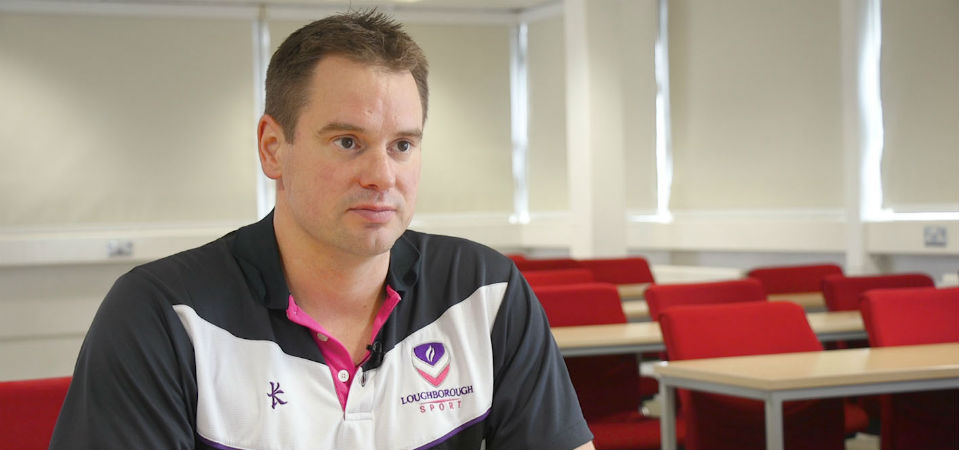He has worked with Olympians, professional sportsmen and women and the Armed Forces to improve the way they use goal-setting in their work.
But there are ways of setting targets which can also help motivate you towards achieving more realistic aims such as New Year’s resolution, such as exercising more, giving up smoking or taking on a new challenge.
As part of our Christmas and New Year health and happiness campaign, Dr Fletcher has shared some of the successful strategies that have helped Britain’s elite athletes bring home Olympic gold.
Set yourself a goal
Whether it’s cutting down on cigarettes, or increasing the miles your run, every goal reached will result in regular motivation to continue.
Make that goal flexible
Don’t make your goals black and white. If you don’t achieve what you set out to do it could be disheartening and you're more likely to fail. So, aim to lose between 1lb – 5lb-a-month, if losing weight is your goal.
Turn the goal into a habit
…. unless your aim is to quit smoking. But for most other things, this is the best way to make sure you keep at it. If you view exercise as something you have to do, rather than something which simply part of your lifestyle, it will be much harder to keep going.
Incorporate smaller targets in long term goals
If you’re running a marathon, then break your target times or target distances down into smaller chunks.
Quotes - Dr Fletcher:

What is goal-setting?
“I often get asked the question, ‘how do we motivate people to do something?’
“Of course, there are a lot of potential answers to that, but one of the most effective techniques we can use is goal-setting.
“So, why is goal-setting so effective in changing people’s behaviour and motivation?
“Well, it does a few things.
“The first thing is that it directs their behaviour in a certain direction – and then as they achieve goals they get more confident, and as they get more confident they’re more motivated to go on and continue with what they’re doing.”
Black and white goals
“You need to set flexible goals, so it might be something like… on average I want to exercise three times-a-week.
“So, that doesn’t mean you can’t exercise more or less than that but you’re going for an average which gives you a bit of flexibility.”
“A classic pitfall is focusing on the outcome.
“For example, I want to lose ‘so much’ by the end of the month.
“Whereas, what they would be better off doing is focusing on enjoyment.
“Or, focusing on how to change lifestyles and habit on a day-to-day basis which will result in you being more active.”
Integrate your goals into your lifestyle
“Think about what you will do in its totality and think about ways that you can make small changes throughout the day to increase, for example, how many calories your burn.
“But, also, think about how realistic that is if you have other commitments such as family and work.
“How do you integrate that into your day and work and family life.”

Running a marathon
“It’s important that you back that up with other sub-goals.
“For example, how am I going to run my first 5k, and then my first 10k, en route to that marathon?
“How am I going to learn more about the sport itself so I make sure that I stay healthy and keep enjoying it?
“How do I get involved in different local clubs?
“So, it’s important that if you do set one of those big challenges for yourself that you set sub-goals and sub-challenges within that.”
Goals and ath-elites
“We can learn a lot from some of the world’s best athletes, actually.
“They set themselves goals all the time – to help motivate themselves and help direct their behaviour towards what they ultimately want to achieve.
“For example, if you’re an Olympic level athlete it may be your overall goal to win an Olympic Games, but they will back that up with a lot of different goals within that.
“So… what sort of times might I need in order to progress my technique?
“My tactics?
“My nutrition?
“All these factors will lie under that big goal – so what that means for all of us is that if you have that big goal to lose weight, or run that marathon, you need to back that up with a lot of sub-goals and then as you achieve those sub-goals that gives you confidence to keep going and it keeps you motivated to get to where you want to be.”
Dr Fletcher is an advisor to and former Director of the Loughborough Sport Psychology Service.
He also works closely with organizations on creating environments and cultures that enable high performance, including:
• UK Sport
• Sport England
• British Olympic Association
• British Swimming
• British Triathlon
• British Broadcasting Corporation
• Sky Sports
• Lloyds TSB
• National Health Service
Loughborough University’s Christmas and New Year health and wellbeing campaign is aimed at using the knowledge and experience of academics and professionals to give advice about physical and mental wellness over the festive season and into next year.
Follow the latest campaign content by searching for the #LboroExperts hashtag on Twitter, or on our Facebook page and YouTube channel.
ENDS
